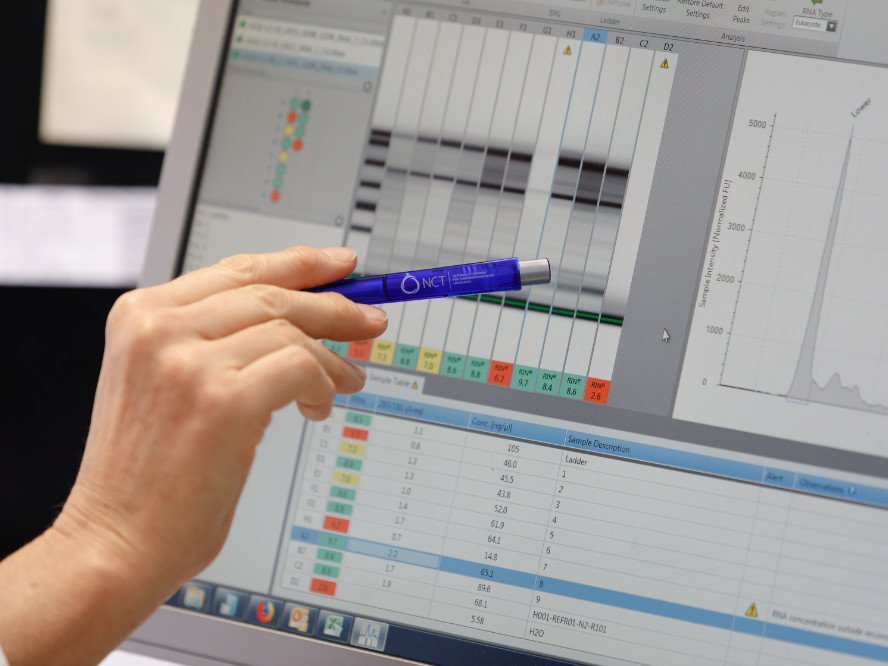New Precision Oncology Approach for Rare Cancer Patients
- 24 Jun 2021
- Ulrike Träger
A new study from GHGA partners National Center for Tumor Diseases (NCT) and German Cancer Consortium (DKTK) demonstrates the feasibility and clinical value of whole-genome/exome sequencing and RNA sequencing in patients suffering from early onset or rare cancer types.
Comprehensive genomic and transcriptional analysis can enable personalised medicine and improve patient care. The ongoing multicenter observational NCT/DKFZ/DKTK MASTER (Molecularly Aided Stratification for Tumor Eradication Research) study established a centrally coordinated standardised precision oncology workflow. The workflow allowed over 100 partners across multiple institutions to enroll patients and analyse data under comparable conditions. The molecular and clinical results for the first 1310 patients have now been published.
Assessing 472 clinically relevant genes and 6 composite biomarkers, a panel of experts (the molecular tumour board) gave evidence-based recommendations for clinical care. For 86.9% of patients, a new therapy approach was suggested. Recommended drugs could be administered in about one-third of cases, either within clinical trials, under compassionate use protocols, or off-label. When administered, the suggested therapies significantly improved overall response and disease control rates compared to previous therapies. For one third of patients, the progression-free survival rate increased. However, not all subgroups benefited from molecular profiling. Further biological characterisation and development of data interpretation methods are therefore needed.
To be feasible, precision medicine needs to be high throughput and timely. By implementing standardised and largely automated core processes, a stable turnaround time for sample processing, sequencing, and bioinformatic analysis, with a median of 21 days was achieved. Overall turnaround time was 44 days, including histological analysis and the molecular tumour board meeting.
Thus, the MASTER program demonstrated that genomic and transcriptomic analysis provides diagnostic and therapeutic benefits for the prognostically unfavorable cases among rare cancer patients. Molecular analyses may therefore be considered early in the course of the disease. The results could pave the way for clinical trials and drug approvals for rare cancer patients.
This study was headed by GHGA members Stefan Fröhling and Hanno Glimm. Once operational, GHGA will support such studies by enabling easier access to reference data sets to which patient samples can be compared to. Including analysis pipelines developed by partners such as the MASTER program into the planned GHGA analysis platform is a further feature planned.
Original publication
P. Horak, C. Heining, S. Kreutzfeldt et al. (2021) Comprehensive Genomic and Transcriptomic Analysis for Guiding Therapeutic Decisions in Patients with Rare Cancers. Cancer Discovery, a journal of the American Association for Cancer Research. DOI: 10.1158/2159-8290.CD-21-0126
Further information
www.nct-dresden.de/forschung/nct-master-program
Press release






